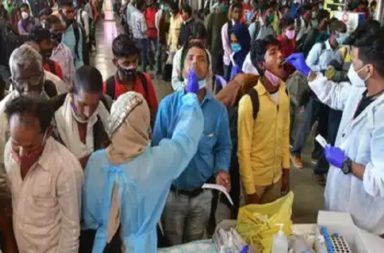The International Cricket Council is all set to resume cricket at all community, domestic and international level with comprehensive guidelines. After a phase of strict lockdown, governments across the world have started to relax the restrictions imposed due to the spread of the coronavirus pandemic.
For the safe resumption of the sport, the comprehensive document ‘ICC Back To Cricket Guidelines’ has been formed by ICC’s Medical Advisory Committee in consultation with Member Medical Representatives. The guidelines cover how teams around the world should deal with the prospects of a return to training, playing and travelling for it again.
Some of the key guidelines are-
- Appointment of a chief medical officer to ensure that all guidelines are followed as players return to training.
- Conducting a pre-match isolation training camp that will involve temperature checks and Covid-19 testing at least 14 days before travel.
- Maintaining a 1.5-metre distance (or as indicated by the respective governments) between players at all times, and thorough sanitization of personal equipment.
- Players will not use common facilities like showers and changing rooms.
- Availability of the medical resources at every venue.
- ICC believes that the ball is a ‘transmission medium’ of the virus. Players will be provided with clear guidance of using the ball like regular hand sanitising when in contact with the ball, players will not touch their eyes, nose and mouth after making contact with the ball.
- Prohibition on the use of saliva to shine the ball.
- Players will be instructed to not hand over caps, towels, jumpers etc to the umpires between overs.
- Sharing of cricketing equipment will be prohibited.
- Use of chartered flights, adequate social distancing on the flight while travelling.
- Personal equipment should be sanitised before and after use.
Four stages of return to training
Stage 1 – Starting with individual skill-based training.
Stage 2 – Practice in small groups (of less than three players).
Stage 3 – Practicing with a slightly bigger group of players and a coach (less than 10).
Stage 4 – Squad-based training.
ICC has discouraged any on-field celebrations of a wicket like before, as it would lead to players coming into close contact with each other.





